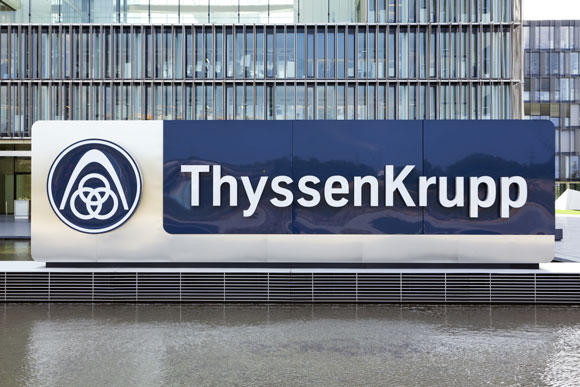Thyssenkrupp Steel restarts blast furnace at Duisburg plant
Thyssenkrupp Steel (TKS) has restarted at the Duisburg plant its blast furnace No. 1. The restart comes after a three-month stoppage for a partial reline, the German steelmaker and flats producer announced.
MetalMiner should-cost models: Give your organization levers to pull for more price transparency, from service centers, producers and part suppliers. Explore the models now.
Thyssenkrupp Steel furnace at Duisburg back at full capacity
The furnace can now operate at full capacity. The furnace can produce 10,000 metric tons per day of pig iron, or 3.65 million metric tons per year, TKS stated Oct. 4.
TKS took BF 1 off stream in early July to conduct the partial reline. In this case, it left the furnace’s outer body intact. The previous campaign lasted over 13 years, TKS stated.
Relining a blast furnace carries a high cost, due to the premium charged for heat-resistant bricks that can contain graphite, carbon, alumina and silicon carbide.
The BF 1 relining, however, will be TKS Europe’s last. The group said that it plans to start replacing the furnaces in 2025 with direct reduced iron plants that will use green hydrogen.
TKS’ main site at Duisburg can produce around 10 million metric tons per year of pig iron via BF 1 as well as BFs 2, 9 and 8, all of which underwent relines within the past eight years.
Duisburg also has two basic oxygen convertors that can produce up to 13 million metric tons per year of crude steel, which it casts into slab.
Mills on site roll the semi-finished product into plate, hot and cold rolled coil. Further downstream, the plant can produce hot dipped galvanized sheet, as well as electrolytic galvanized sheet.
Get social with us. Follow MetalMiner on LinkedIn.




Leave a Reply